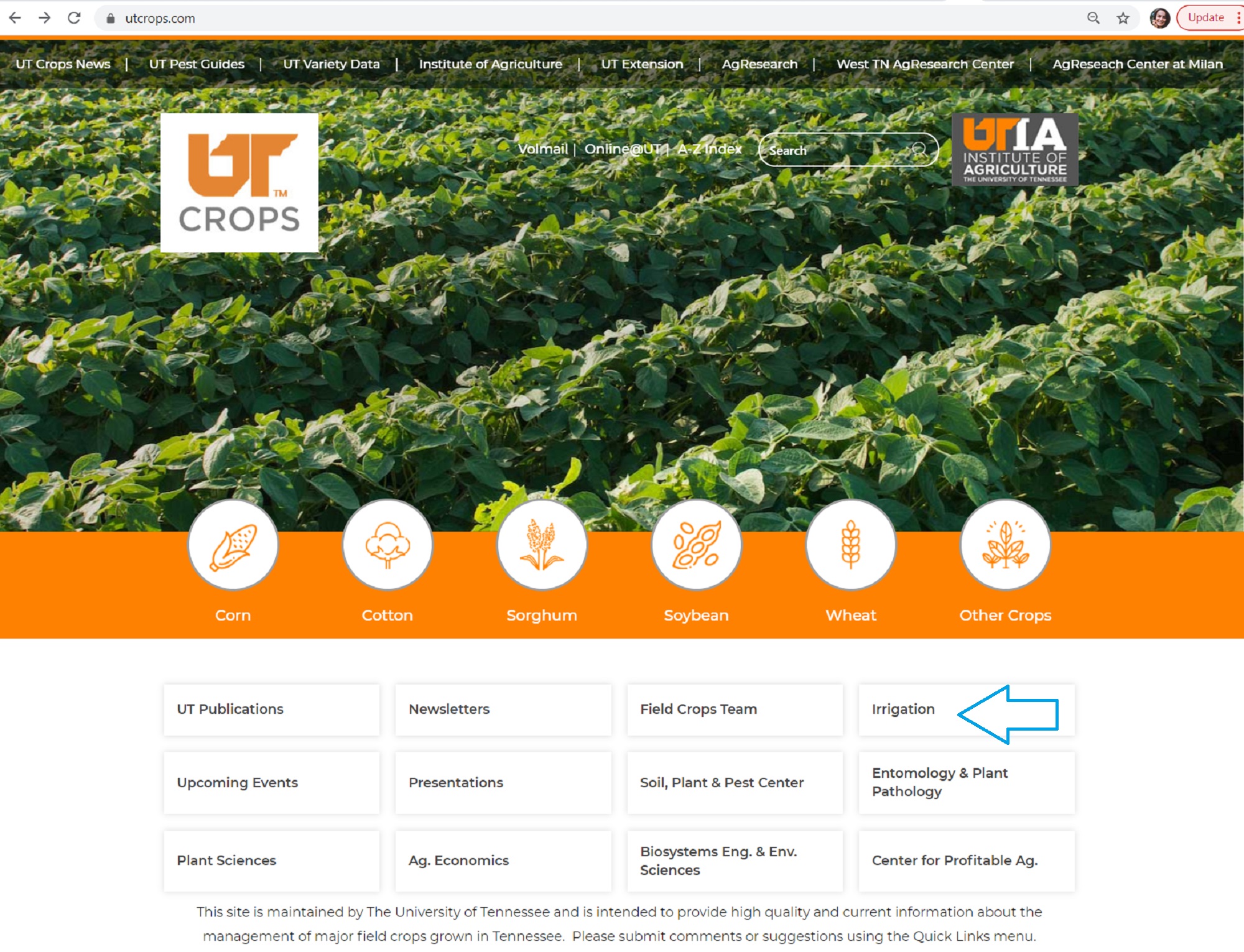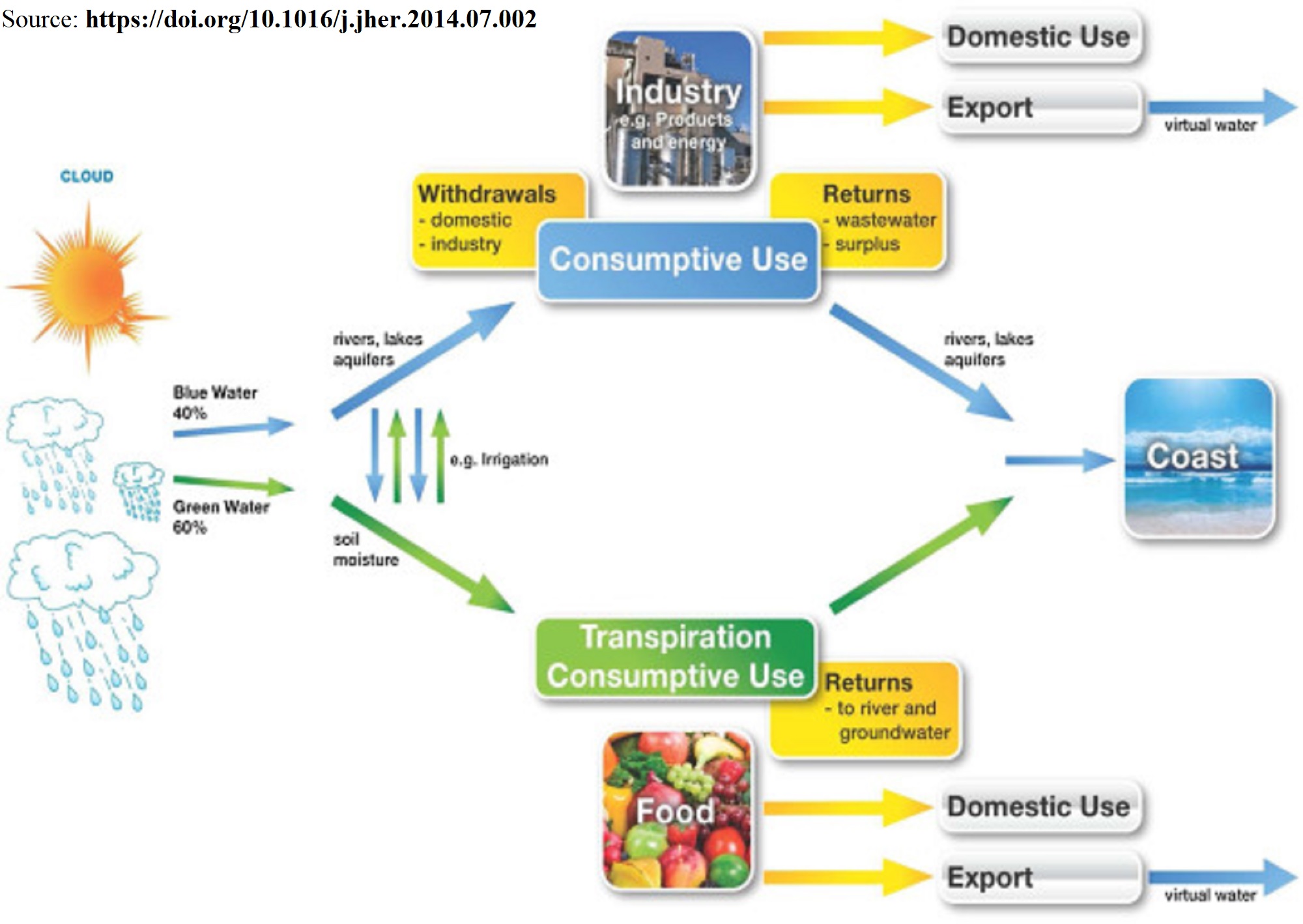| As we approach the end of July, much of our corn and some of our soybean acres are in the latter portion of their respective reproductive growth stages. As we progress toward physiological maturity, lets revisit irrigation termination decisions for these two crops. |
All posts by Avat Shekoofa, Crop Physiologist
Irrigation timing: Corn & soybean
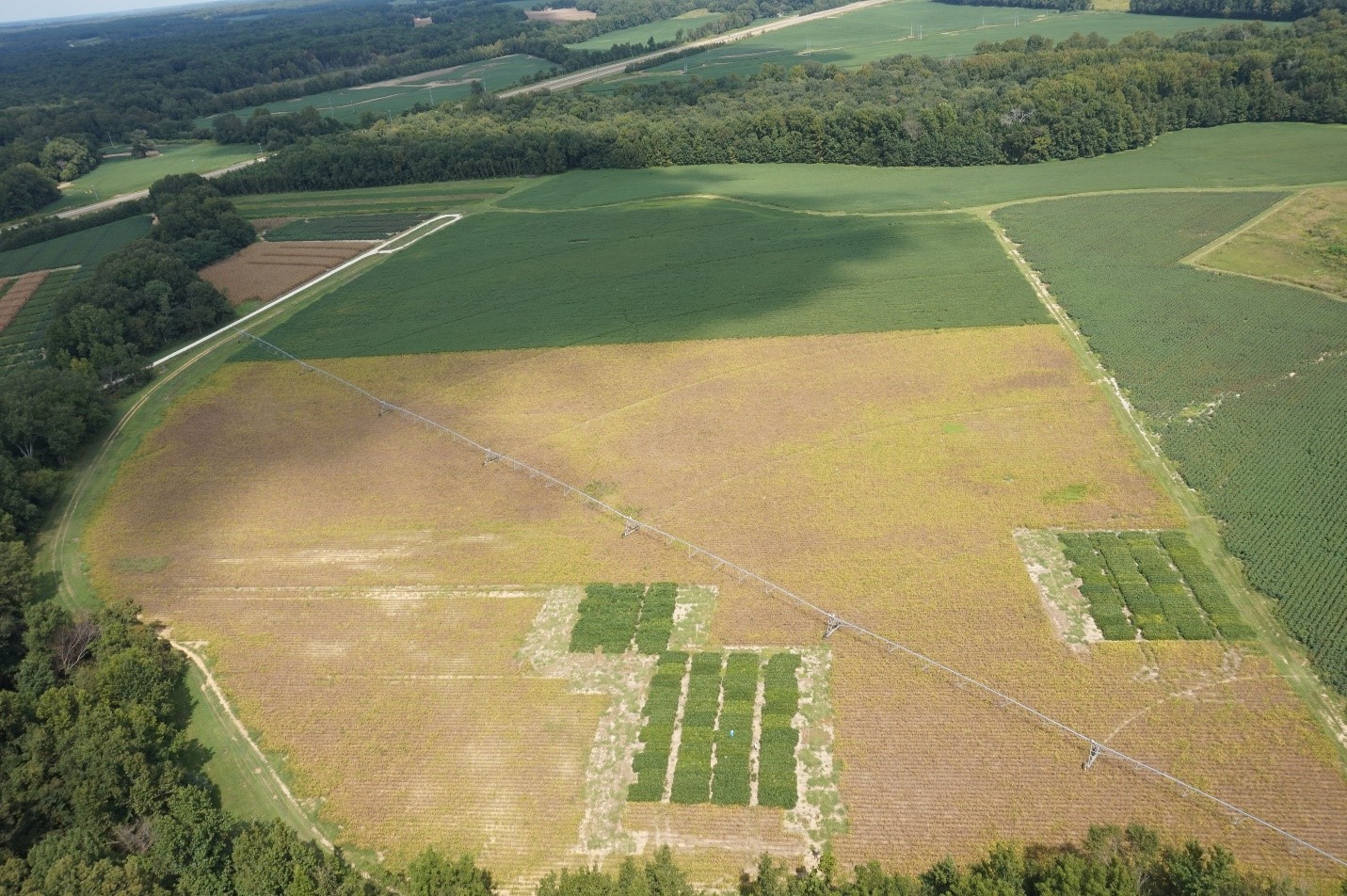 Photo credit: University of Tennessee Institute of Agriculture (UTIA), Shekoofa’s lab
Photo credit: University of Tennessee Institute of Agriculture (UTIA), Shekoofa’s lab
Irrigation timing: Corn & soybean
As we head into the second week of June, many growers are understandably concerned about potential yield loss due to drought stress. In this blog post our Extension Corn and Soybean Specialist, Dr. Jake McNeal and I have discussed irrigation strategies for both corn and soybean.
Understanding the relationship between crops and their environment is critical for effective irrigation management. Crop water use and demand varies as a function of growth stage and weather conditions. Furthermore, the capacity of a soil to hold and deliver water to plant roots (soil water–holding capacity) varies widely across different soil textures.
Also, we want to emphasis that there is a distinct physiological difference between heat stress and drought stress, especially in corn. Even in the presence of adequate soil water, corn leaves will often curl inward from the leaf margins during extended periods of high temperatures. Many refer to this as “pineapple leaves” or a “pineapple crop”. Furthermore, it is very difficult to discern between the two without utilizing a soil water sensor in your crop.
Corn-The Mid-South region of the U.S. receives sufficient annual rainfall to grow corn without irrigation in most years. However, irrigation is common in corn production because rainfall is not always distributed adequately throughout the growing season for the crop, especially during critical reproductive periods. Therefore, not all rainfall can be considered effective. Continue reading
Thoughts on irrigating corn and soybean during 2022
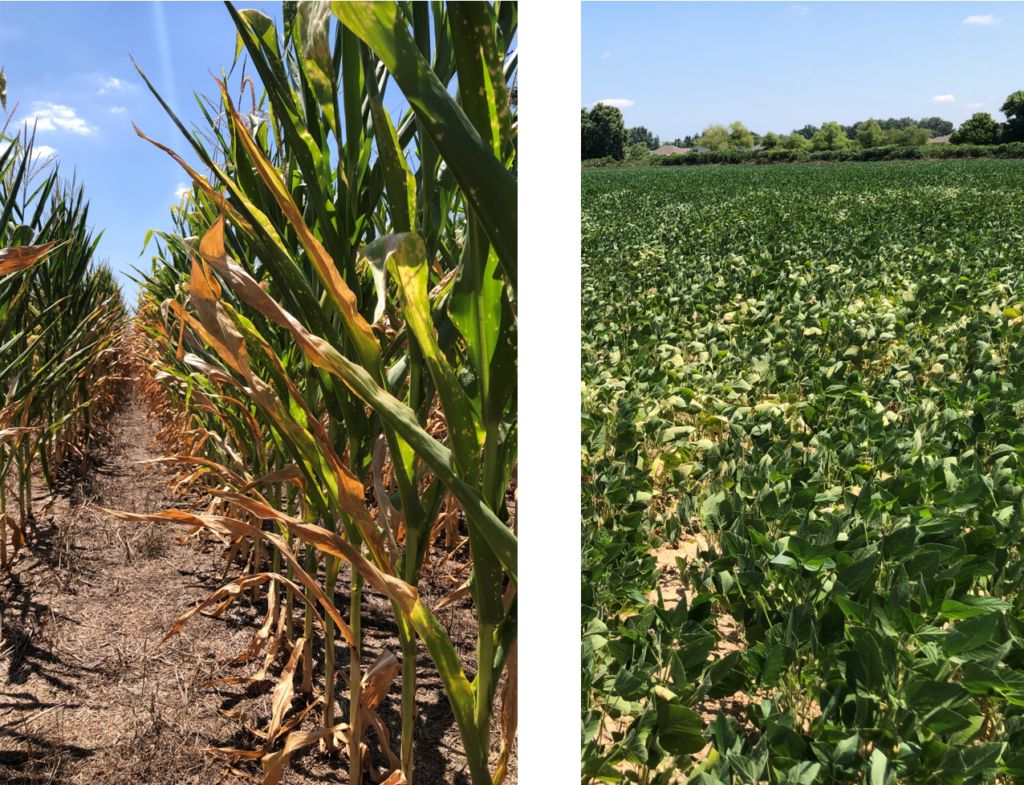 As many of you know, Dr. Angela McClure, our Extension Corn and Soybean Specialist, retired at the end of June after 20 years of service. Dr. McClure will be greatly missed. We are actively searching for a replacement and hope to have the position filled quickly. In the meantime, my colleagues and I will do our best to cover these commodities until the position is filled.
As many of you know, Dr. Angela McClure, our Extension Corn and Soybean Specialist, retired at the end of June after 20 years of service. Dr. McClure will be greatly missed. We are actively searching for a replacement and hope to have the position filled quickly. In the meantime, my colleagues and I will do our best to cover these commodities until the position is filled.
Rainfall (or lack thereof) has been the main topic of conversation in double crop soybean, full season soybean and corn. Several specific questions have arisen lately on irrigation management and how to maximize returns during 2022. With help from several of my colleagues, I’ve worked to update a previous post of Dr. McClure’s with information from 2022. Continue reading
Thoughts on irrigating cotton during July 2022
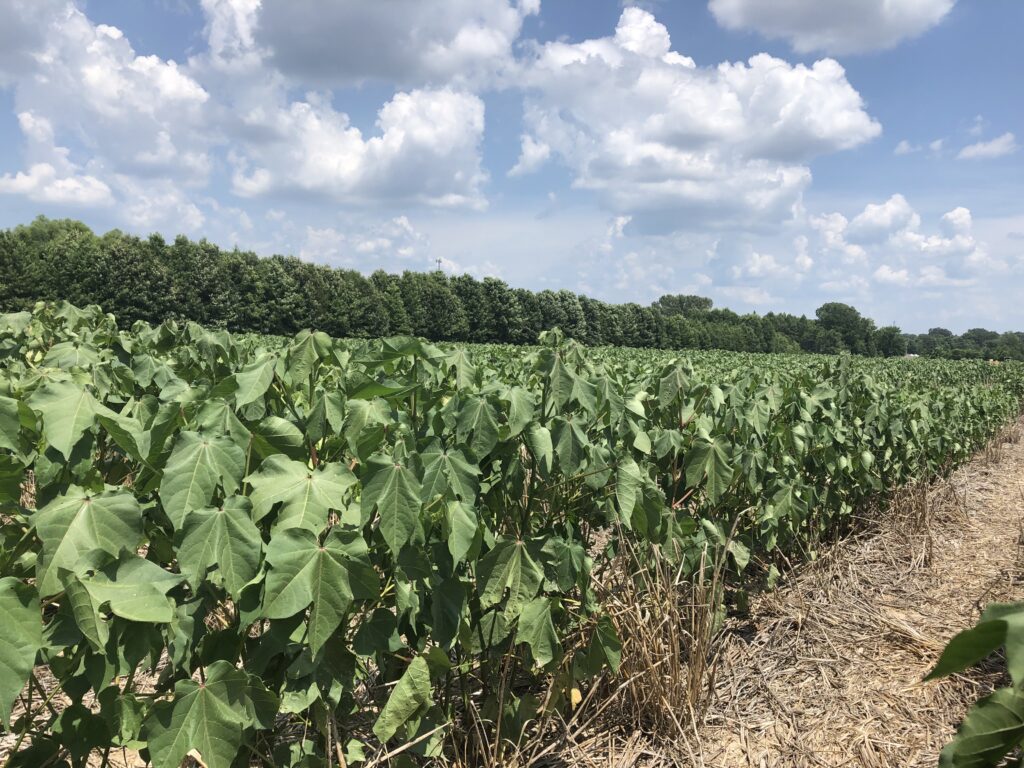 Everyone seems to have an opinion on watering cotton in humid regions- do this, don’t do that unless this happens, etc. Even when you do everything right in a normal year, dryland cotton in TN often comes out close (and occasionally ahead) of irrigated. In a normal year, cotton often finds its way into the more droughty areas of the farm and is often bumped out from under pivots to make way for corn or soybeans which typically respond better to irrigation. Unfortunately, it looks like our response to irrigation during 2022 will more closely mirror that of TX or AZ than what we’ve seen in TN during the past few years. Still, there are a few important things to keep in mind to maximize the response of cotton to irrigation. In this blog, Dr. Avat Shekoofa and I have compiled a few of our ‘dos and don’ts’.
Everyone seems to have an opinion on watering cotton in humid regions- do this, don’t do that unless this happens, etc. Even when you do everything right in a normal year, dryland cotton in TN often comes out close (and occasionally ahead) of irrigated. In a normal year, cotton often finds its way into the more droughty areas of the farm and is often bumped out from under pivots to make way for corn or soybeans which typically respond better to irrigation. Unfortunately, it looks like our response to irrigation during 2022 will more closely mirror that of TX or AZ than what we’ve seen in TN during the past few years. Still, there are a few important things to keep in mind to maximize the response of cotton to irrigation. In this blog, Dr. Avat Shekoofa and I have compiled a few of our ‘dos and don’ts’.
Is it time to irrigate corn?
Corn is not sensitive to water limitations in early vegetative stages, but it’s important to watch the growth stages and soil type when timing irrigation. After V8, corn undergoes rapid vegetative growth and ear size determination begins (Table 1). A corn plant’s irrigation requirement will drastically change with the onset of hot and dry conditions such as are being experienced this month (Figure 1). Continue reading
Cotton growth- managing the ‘runaway’ acre
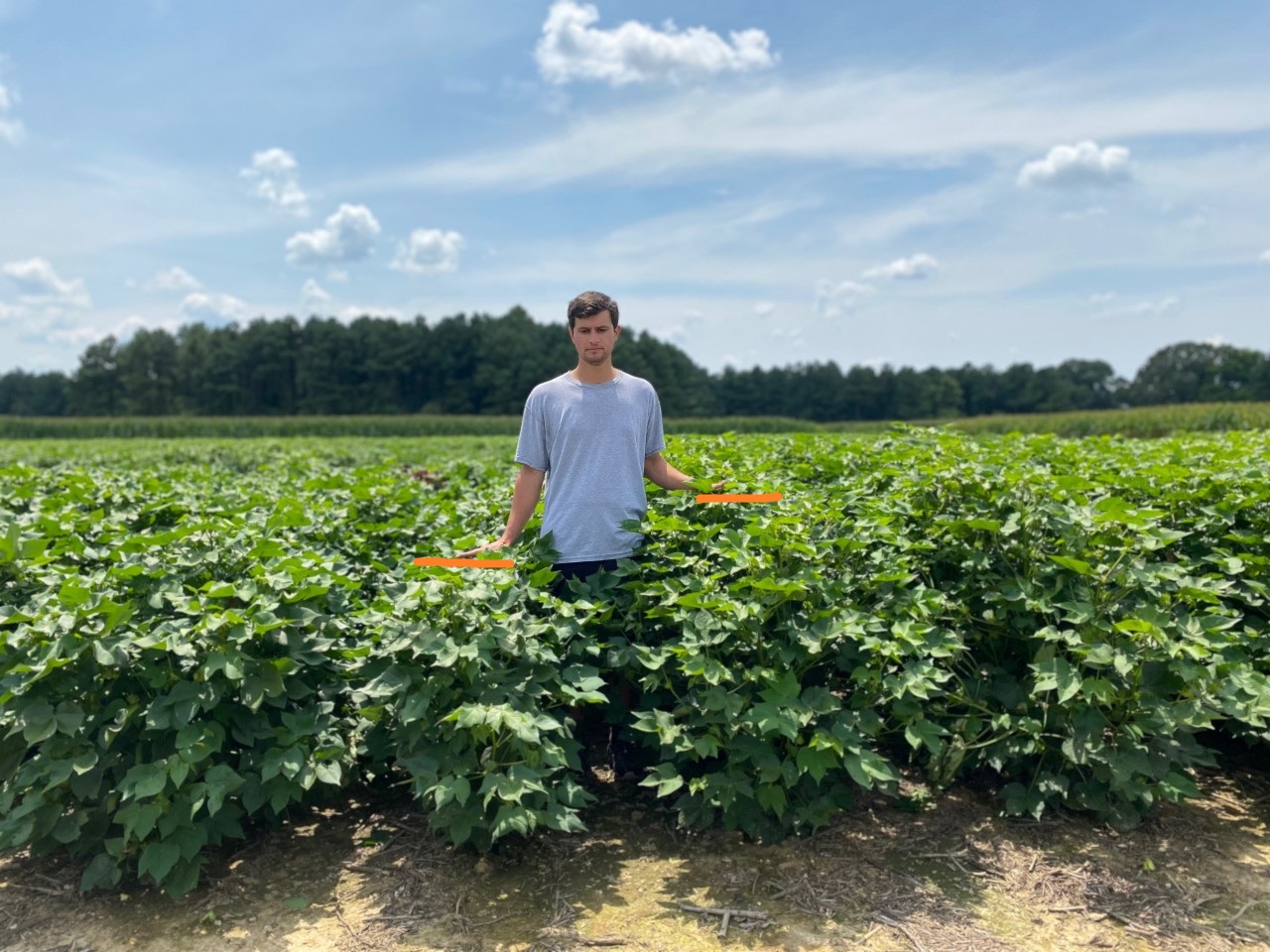
July rains and a rain on the first of August supported rapid growth in many areas. Over the past few days, two of the most common questions have become, ‘How much mepiquat chloride is needed to slow growth?’ and ‘should I also include Stance in the application?’ In this article, we highlight some interesting results from a preliminary study conducted during 2020. Continue reading
Research and education-Two surveys
The purpose of these two surveys as part of a multi-institution grant on climate change research and education is to gain additional insight on the ‘Water quality’ and ‘Soil carbon markets’ issues. The time required to complete these surveys should be no more than 10 minutes. Please complete the surveys. If you have any additional questions regarding these surveys, please contact the lead PI, Dr. Rachna Tewari, at rtewari@utm.edu
PS: This being an exploratory study, anyone engaged in agriculture or livestock production of any scale could complete the survey. The survey has been approved by UTM IRB as an exempt study.
Water quality:
https://utk.questionpro.com/a/TakeSurvey?tt=3JvQhqvdhp%2BCCR4ED4Ig2ntMHws332I/
The NEW IRRIGATION page!!
If you haven’t noticed, now you can access to Tennessee row crop irrigation page through our UTcrops.com. You can go to UTcrops.com then click on ‘Irrigation’. Or you can check the link below for direct access to the irrigation information. The UTcrops.com website gives you ready access to essentially all UT resources related to row crop production.
https://irrigation.tennessee.edu/
